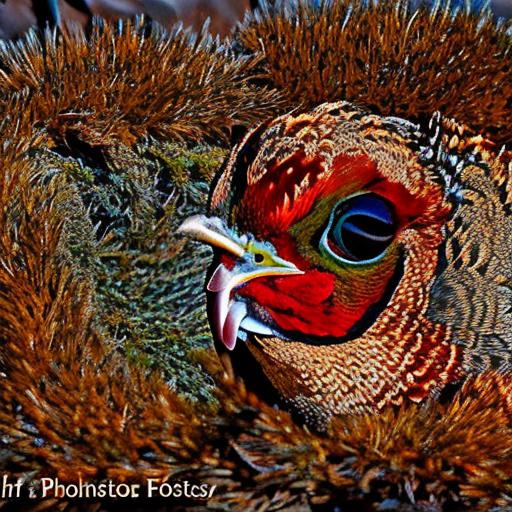Backyard chicken keeping has become increasingly popular in Eaton, Colorado, as more and more residents are discovering the joys and benefits of raising their own chickens. This article will provide a comprehensive guide to backyard chicken keeping in Eaton, covering everything from understanding local laws and regulations to choosing the right breed of chickens, building a safe and secure chicken coop, feeding and caring for your chickens, managing chicken waste, dealing with predators and pests, harvesting fresh eggs, connecting with the backyard chicken community, and more.
The popularity of backyard chicken keeping can be attributed to several factors. First and foremost, it allows individuals to have a direct source of fresh eggs right in their own backyard. Not only are these eggs delicious and nutritious, but they also provide a sense of self-sufficiency and sustainability. Additionally, raising chickens can be a fun and educational experience for both children and adults alike. It teaches responsibility, patience, and respect for animals. Furthermore, chickens are relatively low-maintenance pets compared to other animals, making them an ideal choice for those who want to dip their toes into animal husbandry without taking on too much responsibility.
Key Takeaways
- Backyard chicken keeping is a popular hobby in Eaton, Colorado.
- It is important to understand local laws and regulations before starting a backyard chicken flock.
- Choosing the right breed of chickens is crucial for success in backyard chicken keeping.
- Building a safe and secure chicken coop is essential to protect your chickens from predators and pests.
- Feeding and caring for your backyard chickens requires daily attention and management.
Understanding Local Laws and Regulations
Before embarking on your backyard chicken keeping journey in Eaton, it is crucial to research and understand the local laws and regulations regarding the keeping of chickens. Each municipality may have its own set of rules regarding the number of chickens allowed, coop requirements, setback distances from neighboring properties, noise restrictions, and more.
To ensure compliance with local laws, it is advisable to contact the Eaton City Hall or visit their website to obtain information on the specific regulations for backyard chickens. Additionally, it may be necessary to obtain permits or licenses before starting your flock. By familiarizing yourself with the local laws and regulations from the outset, you can avoid any potential legal issues down the line.
Choosing the Right Breed of Chickens
When it comes to choosing the right breed of chickens for your backyard flock in Eaton, there are several factors to consider. First and foremost, you should consider the climate and weather conditions in your area. Eaton experiences a semi-arid climate with hot summers and cold winters, so it is important to choose breeds that are well-suited to these conditions.
Another factor to consider is the purpose of your flock. If you are primarily interested in egg production, then you will want to choose breeds that are known for their high egg-laying capabilities. Some popular egg-laying breeds include the Rhode Island Red, Leghorn, and Australorp. On the other hand, if you are interested in raising chickens for meat, then you may want to consider meat breeds such as the Cornish Cross or the Freedom Ranger.
Building a Safe and Secure Chicken Coop
Building a safe and secure chicken coop is essential for the well-being of your backyard flock in Eaton. The coop should provide adequate space for the chickens to move around comfortably, as well as protection from predators and the elements.
When building a chicken coop in Eaton, it is important to consider the local climate. The coop should be well-insulated to protect the chickens from extreme temperatures. Additionally, proper ventilation is crucial to prevent moisture buildup and ensure good air quality inside the coop.
In terms of security, the coop should be predator-proof. This means using sturdy materials such as hardware cloth or welded wire mesh to cover all openings, including windows and vents. The coop should also have a secure door that can be locked at night to keep predators out.
Feeding and Caring for Your Backyard Chickens
Proper nutrition is essential for the health and well-being of your backyard chickens in Eaton. A balanced diet will ensure that your chickens lay high-quality eggs and maintain good overall health.
A typical diet for backyard chickens consists of a combination of commercial chicken feed and kitchen scraps. Commercial chicken feed is formulated to provide all the necessary nutrients that chickens need, including protein, vitamins, and minerals. It is important to choose a feed that is appropriate for the age and purpose of your flock.
In addition to commercial feed, you can supplement your chickens’ diet with kitchen scraps such as fruits, vegetables, and grains. However, it is important to avoid feeding them anything that is toxic or harmful to chickens, such as chocolate, onions, or avocado.
In terms of daily care, chickens require fresh water, clean bedding, and regular egg collection. It is important to provide clean water for your chickens at all times and to regularly clean and replace their bedding to maintain good hygiene. Additionally, eggs should be collected daily to prevent them from being damaged or eaten by predators.
Managing Chicken Waste and Keeping Your Backyard Clean

Managing chicken waste is an important aspect of backyard chicken keeping in Eaton. Chicken manure can be a valuable source of fertilizer for your garden, but it needs to be managed properly to prevent odor and contamination.
One way to manage chicken waste is by using a deep litter system in the coop. This involves adding a layer of bedding material such as straw or wood shavings on the floor of the coop and allowing it to decompose over time. The decomposing bedding material helps absorb moisture and control odor.
Additionally, it is important to regularly clean the coop and remove any accumulated waste. This can be done by scooping out the soiled bedding material and replacing it with fresh bedding. The removed waste can then be composted or used as fertilizer in your garden.
Dealing with Predators and Pests
Predators and pests can pose a threat to your backyard flock in Eaton. Common predators include raccoons, foxes, coyotes, and birds of prey. Pests such as rats and mice can also cause problems by stealing eggs or spreading disease.
To protect your chickens from predators, it is important to secure the coop and run with sturdy fencing and wire mesh. The coop should have a secure door that can be locked at night, and all openings should be covered with predator-proof materials.
Additionally, it is important to keep the area around the coop clean and free of debris that could attract pests. Regularly remove any spilled feed or food scraps, and store chicken feed in secure containers to prevent access by rodents.
Harvesting Fresh Eggs
One of the most rewarding aspects of backyard chicken keeping in Eaton is harvesting fresh eggs. Knowing when and how to harvest eggs is important to ensure their freshness and quality.
Most chickens start laying eggs at around 5-6 months of age, although this can vary depending on the breed. The frequency of egg production will also depend on factors such as breed, age, and environmental conditions.
To harvest eggs, simply check the nesting boxes daily and collect any eggs that have been laid. It is important to handle the eggs gently to prevent cracking or damage. If the eggs are dirty, they can be gently wiped clean with a dry cloth or brush, but it is generally best to avoid washing them as this can remove the protective bloom on the shell.
Fresh eggs can be stored at room temperature for up to a week, or in the refrigerator for up to a month. To determine if an egg is still fresh, you can perform a simple float test. Fill a bowl with water and gently place the egg in it. If the egg sinks to the bottom and lies flat on its side, it is fresh. If it stands upright or floats to the top, it is no longer fresh and should be discarded.
Connecting with the Backyard Chicken Community
Connecting with the backyard chicken community in Eaton can be a great way to learn from experienced chicken keepers, share tips and advice, and build a sense of community.
One way to connect with other backyard chicken keepers is by joining local backyard chicken groups or forums. These groups often organize meetups, workshops, and events where you can learn from experienced chicken keepers and share your own experiences.
Additionally, social media platforms such as Facebook and Instagram can be great resources for connecting with other backyard chicken keepers. There are many dedicated groups and pages where you can ask questions, share photos, and engage in discussions about all things chicken-related.
Keeping backyard chickens in Eaton, Colorado, is a fun and rewarding hobby that provides a direct source of fresh eggs, teaches valuable life skills, and fosters a sense of self-sufficiency and sustainability. By understanding local laws and regulations, choosing the right breed of chickens, building a safe and secure coop, providing proper nutrition and care, managing waste, dealing with predators and pests, harvesting fresh eggs, and connecting with the backyard chicken community, you can enjoy all the joys and benefits that come with raising your own flock of chickens. So why not consider joining the growing community of backyard chicken keepers in Eaton?
If you’re considering keeping backyard chickens in Eaton, Colorado, you may be wondering how to create the perfect chicken coop. Look no further than this informative article on turning a shed into a chicken coop. This article from Poultry Wizard provides step-by-step instructions and helpful tips on transforming a shed into a comfortable and functional home for your feathered friends. Whether you’re a beginner or an experienced chicken keeper, this resource will guide you through the process of creating a safe and cozy space for your chickens to thrive. Check out the article here to get started on your backyard chicken adventure in Eaton, Colorado.
FAQs
What are the regulations for keeping backyard chickens in Eaton, Colorado?
According to the Eaton Municipal Code, residents are allowed to keep up to six chickens on their property as long as they are kept in a secure coop or enclosure and are not causing a nuisance to neighbors.
Do I need a permit to keep backyard chickens in Eaton?
No, a permit is not required to keep backyard chickens in Eaton as long as you comply with the regulations set forth in the Municipal Code.
What kind of housing do I need for my backyard chickens?
Your chickens must be kept in a secure coop or enclosure that is predator-proof and provides adequate space for them to move around. The coop must also be kept clean and free of odors.
Can I sell eggs from my backyard chickens?
Yes, you are allowed to sell eggs from your backyard chickens in Eaton as long as you comply with any applicable state and local regulations.
What are the rules for disposing of chicken waste?
Chicken waste must be disposed of in a manner that does not create a nuisance or health hazard. It should be composted or disposed of in a sealed container and not dumped in public areas or storm drains.
What should I do if my neighbors complain about my backyard chickens?
If your neighbors complain about your backyard chickens, you should try to address their concerns and make any necessary changes to ensure that your chickens are not causing a nuisance. If you are unable to resolve the issue, you may need to contact the Eaton Code Enforcement Department for assistance.
Meet Walter, the feathered-friend fanatic of Florida! Nestled in the sunshine state, Walter struts through life with his feathered companions, clucking his way to happiness. With a coop that’s fancier than a five-star hotel, he’s the Don Juan of the chicken world. When he’s not teaching his hens to do the cha-cha, you’ll find him in a heated debate with his prized rooster, Sir Clucks-a-Lot. Walter’s poultry passion is no yolk; he’s the sunny-side-up guy you never knew you needed in your flock of friends!







